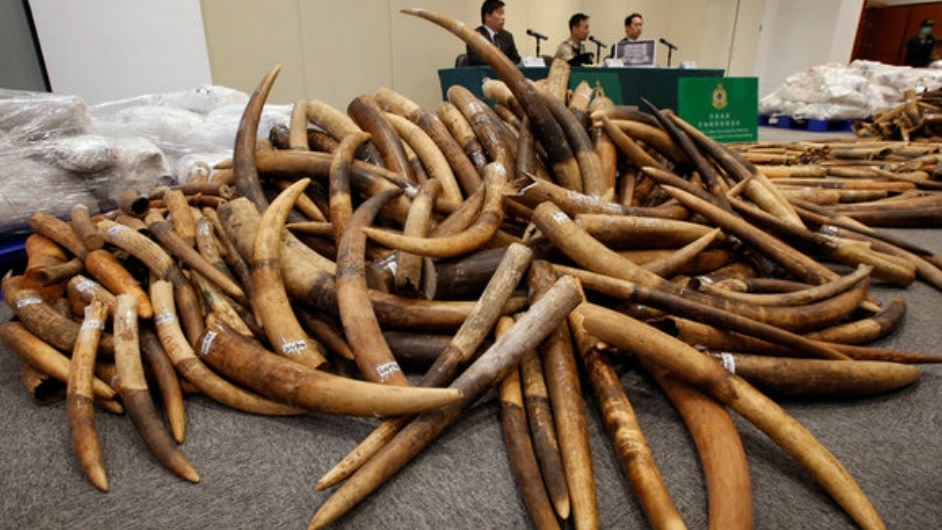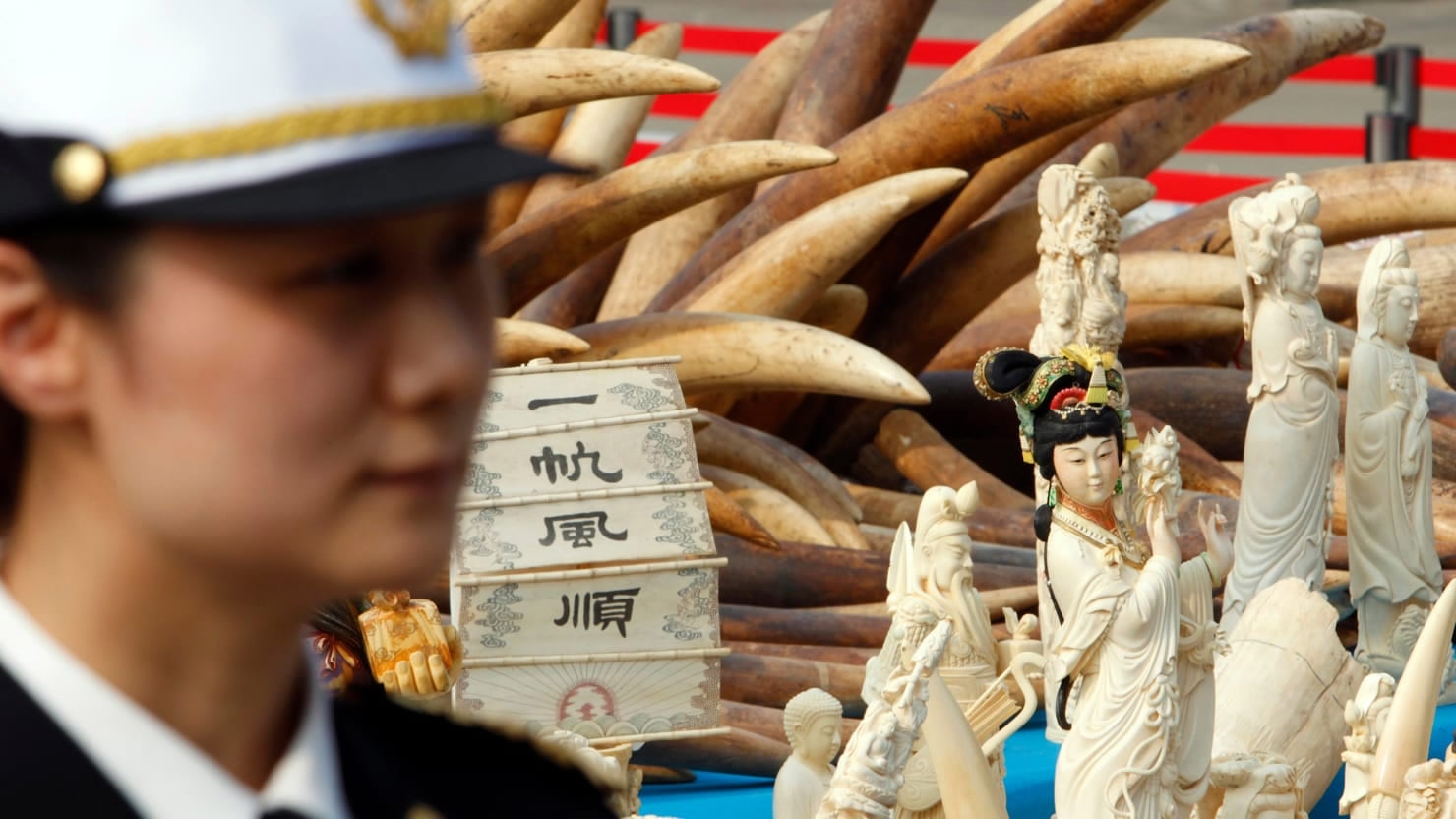
Business
17:31, 09-Jan-2018
HK court fines ivory trader $1,000 as China cracks down
CGTN

A Hong Kong court found an ivory trader guilty of illegal ivory possession and imposed a relatively light fine of 8,000 HK dollars, or 1,022 US dollars, on Tuesday, less than two weeks after China implemented a total ban on ivory sales.
China is the world’s largest importer and end user of elephant tusks. Wildlife activists called the ban, implemented at the end of 2017, a vital step toward reducing the slaughter of the endangered animals.
Hong Kong trader Lau Sai Yuan was fined 8,000 HK dollars for illegal ivory possession after pleading guilty in Hong Kong’s Eastern Magistrates’ Court. Another trader, Huen Kwok Leung, pleaded not guilty and his trial was postponed to April.
The maximum penalty under current laws is two years in jail.
Hong Kong lawmakers are considering a significant increase in penalties, with a fine of up to 10 million HK dollars and imprisonment of 10 years.
Hong Kong, a special administrative region of China, has lagged behind Chinese mainland in the crackdown on illegal ivory trading and only set a timetable for a ban last year, with a phase-out time of five years.

China's customs seize hold of illegal ivory goods./ Reuters Photo.
China's customs seize hold of illegal ivory goods./ Reuters Photo.
The former British colony is a prime transit and consumption hub with more than 90 percent of consumers from Chinese mainland. It has the largest retail market for ivory, which it has traded for more than 150 years.
Hong Kong adheres to regulations set by The Convention on International Trade in Endangered Species of Wild Fauna and Flora (CITES), which started to regulate the international trade of ivory in the 1970s and has banned such trade since 1990.
Only “pre-Convention ivory” is allowed to be traded when the ivory is accompanied by a pre-convention certificate.
A Hong Kong SAR government-led operation to combat illegal ivory trading in June 2017 found two ivory traders had sold ivory chopsticks with ivory obtained after the 1990 ban.
Those two traders were fined 6,000 HK dollars and 8,000 HK dollars.
China has made a big push to eradicate ivory sales and demand has fallen since early 2014 because of a crackdown on corruption and slower economic growth.
Trade in pre-convention ivory had been thriving in Chinese mainland and Hong Kong since 1975. Environmental activists have long asserted that it has led to an increase in laundering ivory and remains a prime obstacle in eradicating the illegal poaching trade.
Source(s): Reuters

SITEMAP
Copyright © 2018 CGTN. Beijing ICP prepared NO.16065310-3
Copyright © 2018 CGTN. Beijing ICP prepared NO.16065310-3